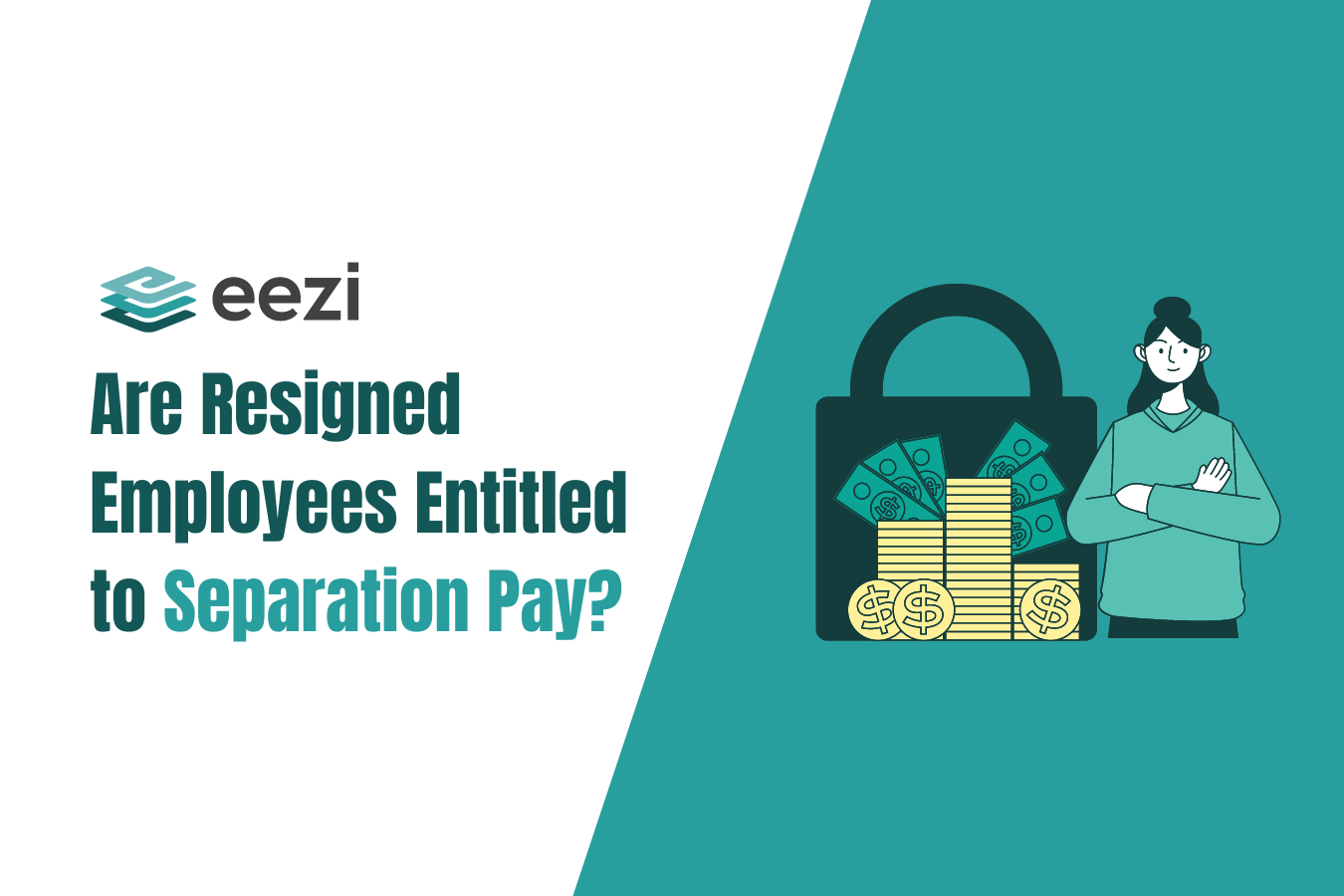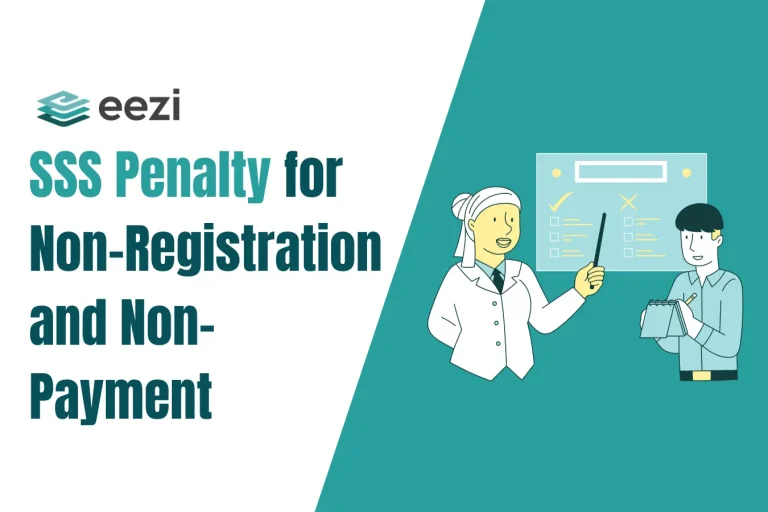Are resigned employees entitled to separation pay? Know all the rules and exceptions on how to pay terminated and resigned employees.

An employee who voluntarily resigns is generally not entitled to separation pay unless the employment contract or company policy states otherwise. Since resignation is a voluntary act by the employee themself, employers are not bound to give this pay.
Generally, employers are only required to issue a separation pay to terminated employees due to the following reasons under the Philippine Labor Code:
- Installation of labor-saving devices
- Redundancy
- Retrenchment to prevent losses
- Closing or cessation of business

Furthermore, employers with labor unions may be required to settle the pay. Provided, of course, that it is stipulated in the Collective Bargaining Agreement. The same is true for employment contracts or as an established employer practice.
Again, when an employee voluntarily resigns, the employer does not consider it a termination. As a result, the employee is not entitled to separation pay.
Who is entitled to separation pay in the Philippines?
Resigned employees generally do not receive separation pay. Only a terminated employee can be entitled to the pay. Provided that the termination of their employment is due to authorized causes under Article 198 of the Labor Code. An authorized cause could either be of the following:
Related: DOLE Rules on Exiting Employees
Separation Pay: Labor Code Authorized Causes
Installation of labor-saving devices
Under Article 298 of the Philippine Labor Code, an employee who is terminated as a result of the installation of labor-saving devices is entitled to separation pay.
Redundancy
Also, under Article 298, an employee terminated due to redundancy is entitled to separation pay.
Retrenchment due to financial losses
Article 298 also states that an employee terminated due to retrenchment to prevent losses is entitled to this pay.
Closure or cessation of operations
According to Article 299, an employee terminated due to the closure or cessation of operations of the establishment or undertaking should receive separation pay.
Disease
Article 284 of the Philippine Labor Code protects employees who are suffering from a disease. The same law also protects those who is incapable of performing their duties. More specifically, it applies to someone whose continued employment is deemed illegal, given their illness. After serving for a period of more than six months, such employees should receive separation pay.
What should the employer do before terminating an employee?
The DOLE requires the employer to submit written notices for authorized causes of termination. Furthermore, it should be addressed to both the worker and the department. Additionally, this document should be in 30 days before the separation date.
Generally, terminated employees must receive separation pay. Furthermore, it must be equivalent to at least one month of salary multiplied by the number of years in service. Otherwise, it is half of the monthly basic pay multiplied by every year of service in the company, or whichever is higher.
How soon should an employee receive their separation pay?
Under the Philippine Labor Code, an employer is required to give out the pay due to an employee within 30 days from the date of the employee’s termination.
Should there be delays, the employee may file a complaint with the Department of Labor and Employment (DOLE). Alternatively, they could bring a case to the appropriate regional branch of the National Labor Relations Commission (NLRC).
How much is the separation pay?
The exact amount of pay that an employee is entitled to receive depends on their length of service and the circumstances under which their employment is terminated. Under authorized causes, terminated employees should receive a separation pay equivalent to a month’s pay or a half month’s pay for every year they have worked in the company.
If an employee believes that they are not receiving the appropriate amount of separation pay, they may seek legal advice. Additionally, they can also ask for assistance from the DOLE or the NLRC.
What are the cases where a terminated employee does not receive a separation package?
In the Philippines, an employee can be terminated without pay if the termination is for just cause.

Just cause for termination includes the following:
- Serious misconduct
- Gross negligence
- Fraud
- Dishonesty
- Abandonment of work
- Gross and habitual inefficiency in the performance of duties
In addition to just cause, an employee may also be terminated without separation pay if the employee is found to be committing an act that is inimical to the company. This means that the employee’s actions are harmful or prejudicial to the interests of the company.
It’s important to note that an employee who is terminated without separation pay is still entitled to receive any unpaid wages and benefits that are due.
In the Philippines, the grounds for termination without this pay are provided for in Articles 282 and 283 of the Labor Code.
What happens if an employee is illegally dismissed?
An illegally dismissed employee may file a complaint with the Department of Labor and Employment (DOLE) or with the National Labor Relations Commission (NLRC).
Complaint via DOLE
If the complaint is filed with the DOLE, the complaint will be transferred to the appropriate regional arbitration branch of the NLRC for resolution. If the complaint is filed with the NLRC, it will be assigned to a labor arbiter for resolution.
Hearing with a labor arbiter
The labor arbiter will conduct a hearing to determine the merits of the complaint and will issue a decision based on the evidence presented. If the labor arbiter finds that the employee was indeed illegally dismissed, the employer may be ordered to reinstate the employee to their former position.
Payment of back wages
In addition, they must also pay back wages and other benefits that were lost as a result of the illegal dismissal. The courts have the discretion to grant separation pay based on justifiable circumstances.
Employee damages payment
But is the employee entitled to damages? Yes, it is also possible that the employer may be ordered to pay damages.
Lastly, the employee must file the complaint within six months from the date of dismissal in order to be eligible for relief.
Final pay or last pay vs. separation pay vs. severance pay
Separation pay is the monetary equivalent of an employee’s unused vacation and sick leave credits upon termination of employment. It is also known as terminal pay. It is generally calculated based on the employee’s length of service and the number of leave credits that have not been used.
Last pay, on the other hand, refers to the employee’s final salary or wages, including any bonuses or commissions that may be due, before their employment is terminated.
Both separation pay and last pay are typically paid to an employee when their employment is terminated, either voluntarily or involuntarily. However, the specific terms of separation and last pay may vary depending on the company’s policies and the circumstances of the employee’s termination.
Furthermore, separation pay is different from severance pay. Severance pay is a form of financial assistance provided to an employee who has been terminated, which could be due to a company’s financial difficulties or bankruptcy.
Learn the separation pay computation rules. Check out this article.
Related: DOLE guidelines on back pay
Make accurate payments to resigned and terminated employees
Pay employees accurate salaries regardless of employment status with eezi’s HR software to calculate payroll.



